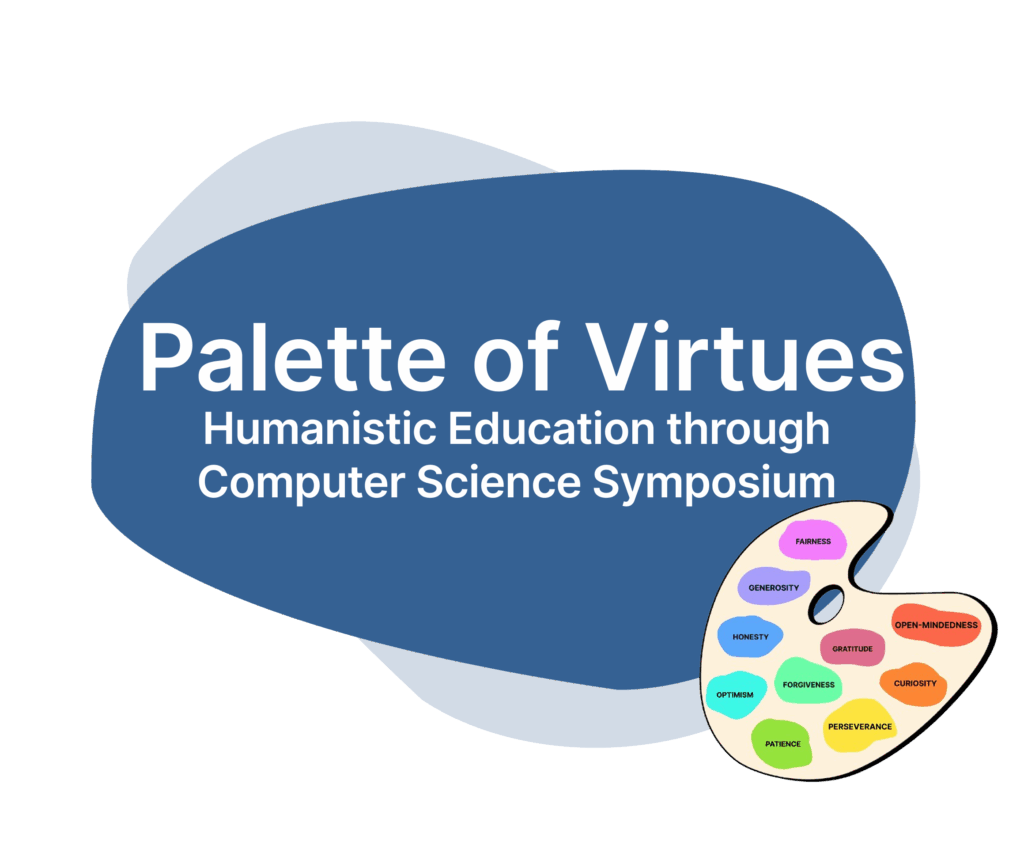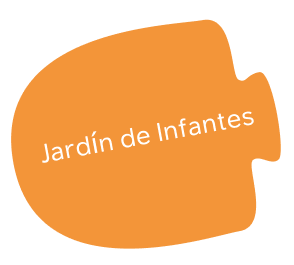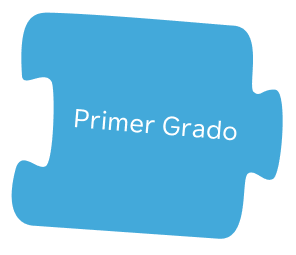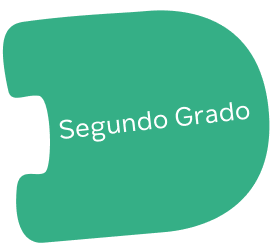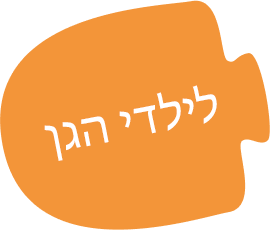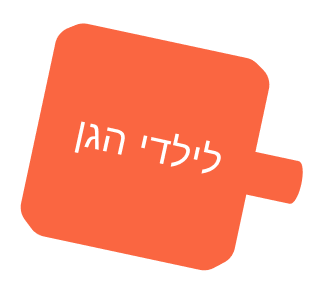ScratchJr is a free programming language for children ages 5-7. In the summer of 2014, ScratchJr was released as a free iPad app. As of September 2024, the app has had over 60 million users, and over 277 million ScratchJr projects have been created. Furthermore, volunteers from around the world have helped translate ScratchJr into 48 languages! The top 10 countries using ScratchJr include: US, UK, Japan, India, Iran, Australia, Peru, Canada, Germany, and Brazil.
Since January 2016, the DevTech Research Group has used Google Analytics to collect ScratchJr user data. Google Analytics is a free tool that allows access to user activity as it happens in real-time on the app, as well as audience location, acquisition, and behavior. However, given ScratchJr’s young demographics, privacy was a top concern for the team. Only non-identifying information is collected and researchers do not have access to the pictures or sounds that children can import or any of their specific projects.
Research Projects
Partnerships
Educators, researchers, and innovators from around the world gathered to attend this event.
The Event
The symposium took place across three days. Within these days, participants engaged in in depth discussions with Professor Marina Bers and Professor Zvi Bekerman regarding virtues and values in their own practices. Additionally, participants engaged in a hands-on workshop in which they had the opportunity to create projects with novel technologies being developed at the DevTech Research Group. Through this work, as well as the guided discussions, participants reflected on the role of virtues in computer science education and human development more broadly.
Impact
The symposium gathered 28 educators, researchers, and innovators from ten countries and more than 20 nonprofit organizations around the world.
Related Papers
Bers, M.U. (2025). Computer science education as a humanistic endeavor: a model for designing technology-rich formative experiences. Educ Inf Technol. https://doi.org/10.1007/s10639-025-13623-4
Carocca, P. F., Blake-West, J., Bers, M.U. (2024). An International Community of Practice Through ScratchJr: The Coding as Another Language Curriculum Around the World. In Education, Development and Intervention. Integrated Science, vol 23. Springer, Cham. https://doi.org/10.1007/978-3-031-60713-4_3
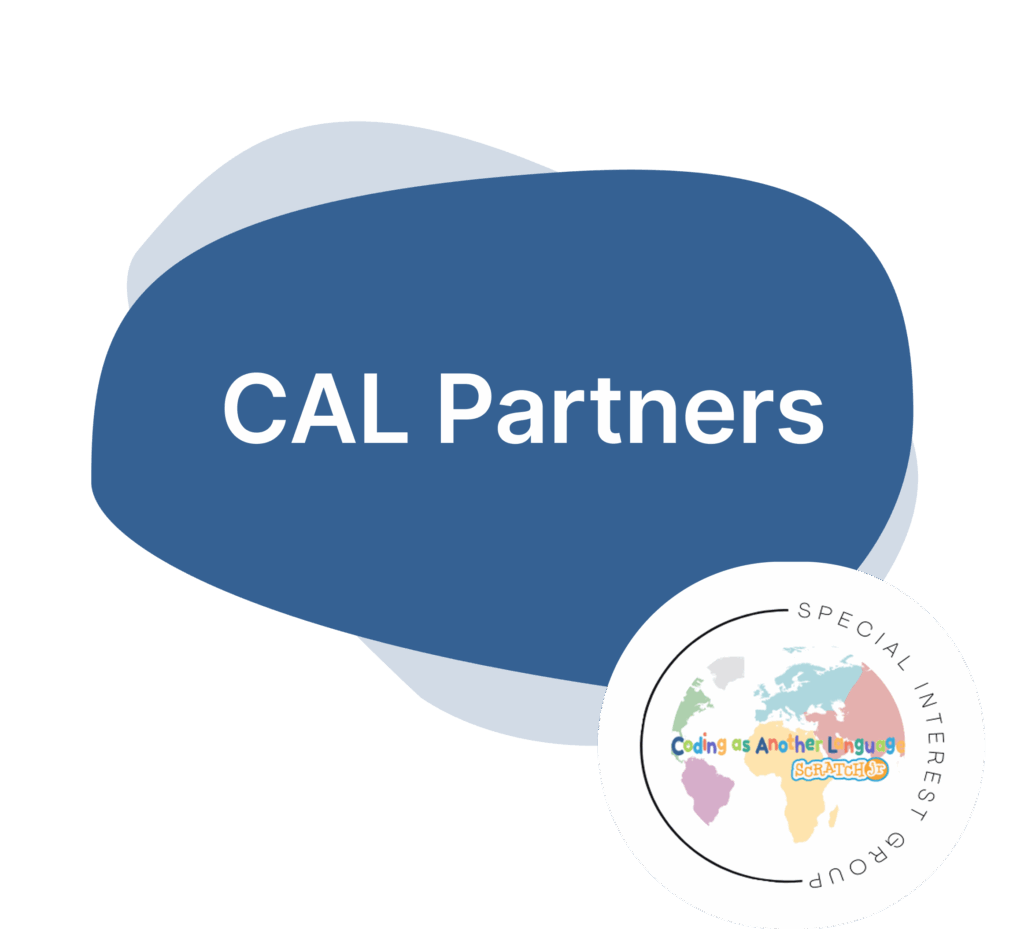
Partnerships
In September 2022, the DevTech Research Group, in partnership with the Scratch Foundation, developed the Coding as Another Language- ScratchJr Special Interest Group (CAL- ScratchJr SIG). This collaborative experience focuses on teaching, localizing, and implementing a curriculum that introduces coding as literacy for kindergarten to second-grade children. The curriculum, centered around ScratchJr, includes 24 lessons that use a mix of unplugged and plugged activities, books, songs, and games to teach coding concepts and skills.
Study Design
Our partners have different options for engaging with CAL-ScratchJr:

Teams can use the CAL- ScratchJr resources to train educators and teach children in different settings.
Teams can translate and adapt the CAL-ScratchJr curriculum to create culturally and linguistically meaningful resources.
Using validated instruments, teams can conduct research to assess educators’ and children’s growth as part of the curriculum implementation impact.
Impact
Since 2022, the SIG is comprised of 31 organizations from 17 countries on 5 continents, speaking more than 10 languages, teaching, localizing, and researching using the CAL pedagogy and resources to introduce educators and children to ScratchJr.
Some Examples
| Country | Actions |
| Greece | Researchers from Crete University localized the curriculum for kindergarten, first, and second grade by translating it into Greek and adapting it, creating new fiction and nonfiction books to teach children with more meaningful resources. Additionally, another team is starting a K-2 curriculum implementation using the translated version of it. |
| Ecuador | A Quito based team, part of the SEC-SIG Cohort 2, devoted time and resources in training elementary educators to learn more about the CAL pedagogy and curriculum. The main goal of this team was to provide democratic opportunities to more educators interested in discussing and expanding computer science and coding knowledge. |
| Israel | Two teams based on Jerusalem are working on bringing more meaningful resources to local students. One of the teams is translating the kindergarten CAL curriculum into Arabic, while the other serves as an afterschool program to introduce young learning to computer science fundamentals. |
| Nigeria | Three organizations in Nigeria have been working on implementing the CAL-ScratchJr curriculum in different settings, adapting it to their needs and emphasizing training educators. |
| Sri Lanka | This team hopes to nurture a generation of innovators, creative thinkers and problem solvers by bringing new approaches, like the CAL curriculum, into traditional classrooms to create an inventive and safe learning environment. |
Related Papers
Carocca, F., Blake-West, J., & Bers, M. (2024). Localizing the Coding as another Language: ScratchJr Curriculum Through the Culture Based Model Framework. In Lindgren, R., Asino, T. I., Kyza, E. A., Looi, C. K., Keifert, D. T., & Suárez, E. (Eds.), Proceedings of the 18th International Conference of the Learning Sciences – ICLS 2024 (pp. 2139-2140). International Society of the Learning Sciences.
Carocca, P. F., Blake-West, J., Bers, M.U. (2024). An International Community of Practice Through ScratchJr: The Coding as Another Language Curriculum Around the World. In Education, Development and Intervention. Integrated Science, vol 23. Springer, Cham. https://doi.org/10.1007/978-3-031-60713-4_3
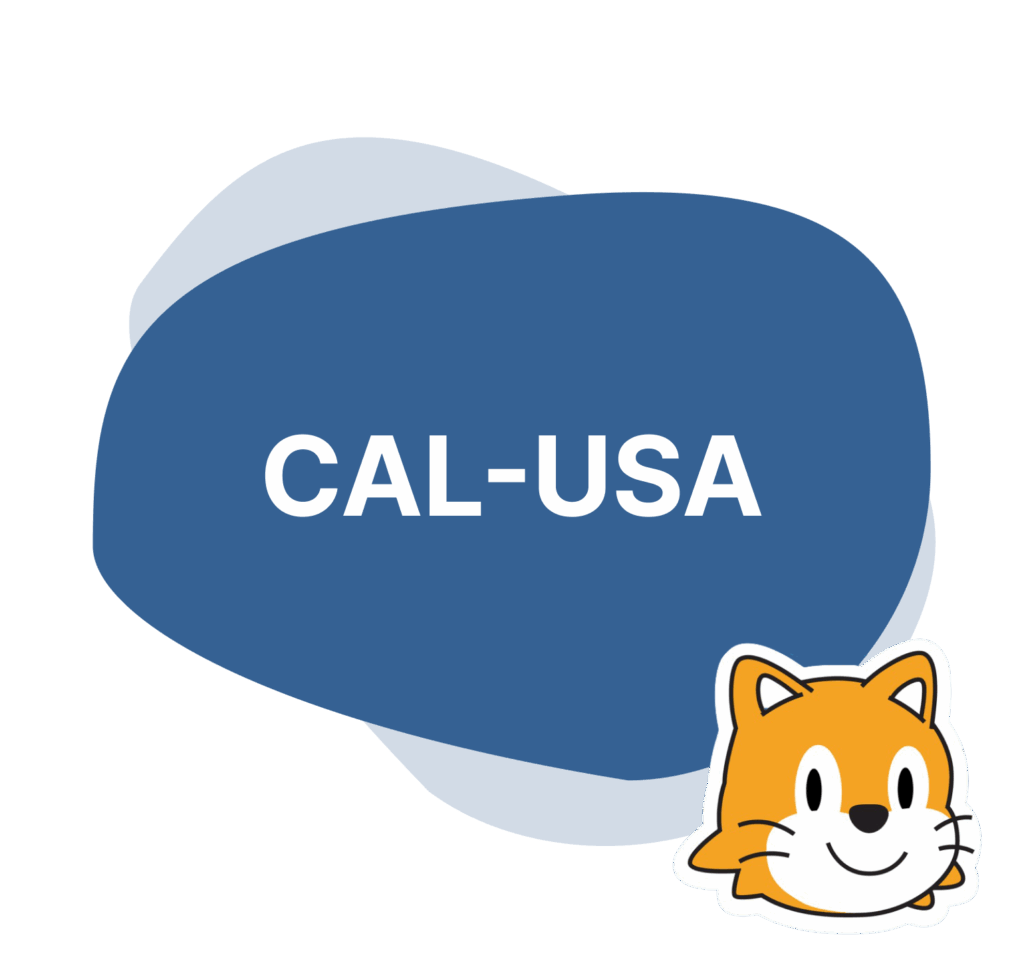
Partnership
The DevTech Research Group at Boston College directed by Prof. Marina Umaschi Bers, is partnering with public school districts in two northeastern states of the United States to conduct research and professional development with regard to the “Coding as Another Language” Education Innovation Research (EIR) grant from US Dept of Education (grant #U411C190006) which explores the integration of coding and computational thinking in K-2 classrooms. The project utilizes the free ScratchJr programming language, co-developed by Dr. Bers, which is currently widely used all over the world by around 32 million children, and the pilot-tested curriculum, “Coding as Another language (CAL)”. This curriculum aligns the integration of computational thinking and computer science with learning about math and literacy, through a collaborative, project-based process. Through this partnership, the project seeks to accomplish three goals:
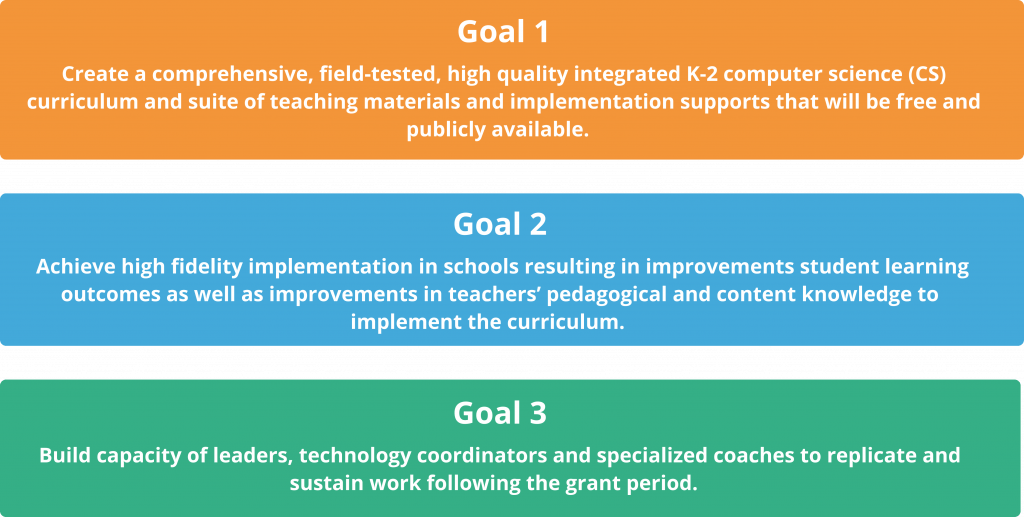
In 2024, through a collaboration with Hampton University and Mississippi State University (MSU) 4-H Extension Service, and with support from the Scratch Foundation, we are bringing coding to underserved children in the southern United States, most specifically to preschool-aged children in historically underserved communities.
Study Design
The CAL curriculum is evaluated for impact through a randomized control trial design with delayed treatment. Impact in K-2 is assessed through differences in learning outcomes in computational thinking and coding skills, math, and language development. A transfer and sustainability study compares fidelity of implementation across groups and measures perceived sustainability through interviews with teachers and Tech Leaders and the development of a strategic plan for being able to continue the work after the grant period ends.
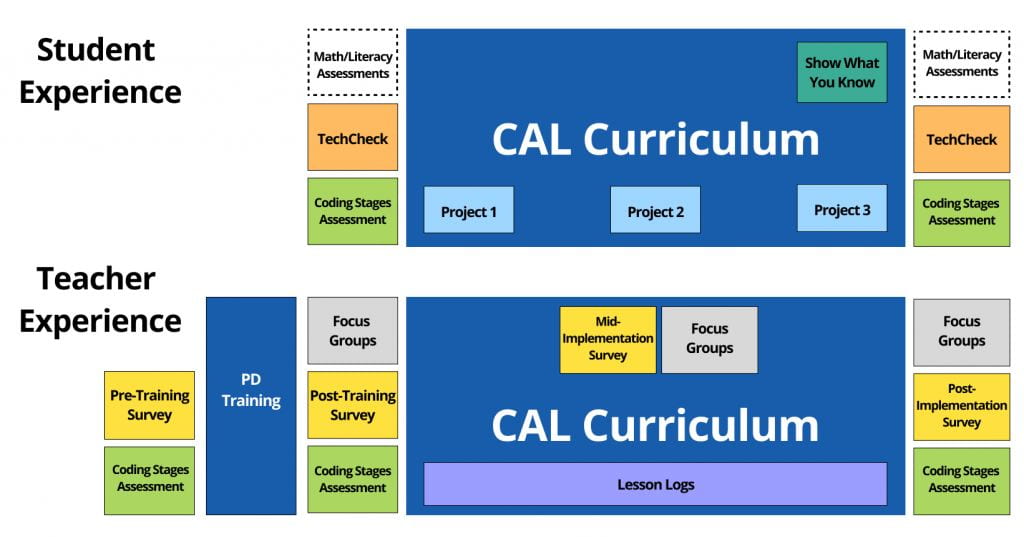
For the development of the preschool and Pre-K CAL resources, we facilitated a series of ScratchJr professional development workshops, both face to face and virtually, to engage educators across Virginia and Mississippi.
Impact
The CAL-USA project began with a Pre-Pilot study, working with two schools in Massachusetts and one school in Buenos Aires, Argentina. Following the Pre-Pilot, a Pilot study was conducted, both virtually and in hybrid format with over 250 children and 30 early childhood teachers at schools in Minnesota, Arkansas, and California. The CAL- USA project then turned to a four-year Randomized Control Trial in public school districts in two northeastern states of the United States. This study included professional development workshops for educators and then curriculum implementation in their classrooms. Through this work, ScratchJr and the CAL curriculum has reached 43 schools, 120 early childhood teachers, 1,600 K-2 students.
Our work for the Pre-K curriculum reached another 40 educators so far in Virginia and Mississippi.
Related Papers
Yang, D., & Bers, M.U. (2024). Enhancing Computer Science Education for K-2 Students: Insights from a Randomized Controlled Trial. American Educational Research Association (AERA) Annual Meeting, Philadelphia, PA.
Yang, D., & Bers, M.U. (2024). Coding as Another Language: Impact on Math and Literacy Achievement in Early CS. American Educational Research Association (AERA) Annual Meeting, Philadelphia, PA.
Yang, D., Yang, Z., & Bers, M. U. (2023). The efficacy of a computer science curriculum for early childhood: evidence from a randomized controlled trial in K-2 classrooms. Computer Science Education, 1-21.
Bers, M. U., Levinson, T., Yang, Z., Rosenberg-Kima, R. B., Ben-Ari, A., Jacob, S., Dubash, P., Warschauer, M., Gimenez, C., Gonzalez, P., & Gonzalez, H. (2023). Coding as Another Language: An International Comparative Study of Learning Computer Science and Computational Thinking in Kindergarten. In P. Blikstein, J. van Aalst, & K. Brennan (Eds.), 17th International Conference of the Learning Sciences (ICLS) (pp. 1659–1665). https://2023.isls.org/proceedings/
Levinson, T. & Bers, M.U. (April 2023). Don’t Assume Deficit: Disability, Coding, and Computational Thinking in Early Elementary School. Paper presented at American Educational Research Association, Annual Meeting, Chicago, IL.
Blake-West, J. C., & Bers, M. U. (2023). ScratchJr design in practice: Low floor, high ceiling. International Journal of Child-Computer Interaction, 37. https://doi.org/10.1016/j.ijcci.2023.100601
Yang, Z. & Bers, M. (2023). Examining gender difference in the use of scratchjr in a programming curriculum for first graders. Computer Science Education.
Bers, M. U., Blake-West , J., Kapoor, M. G., Levinson, T., Relkin, E., Unahalekhaka, A., & Yang, Z. (2023). Coding as another language: Research-based curriculum for early childhood computer science. Early Childhood Research Quarterly, 64, 394–404. https://doi.org/https://doi.org/10.1016/j.ecresq.2023.05.002
Kapoor, M. G., Yang, Z., & Bers. M. (2023). Supporting Early Elementary Teachers’ Coding Knowledge and Self-Efficacy Through Virtual Professional Development. Journal of Technology and Teacher Education. 30 (4). 1-31. 2023
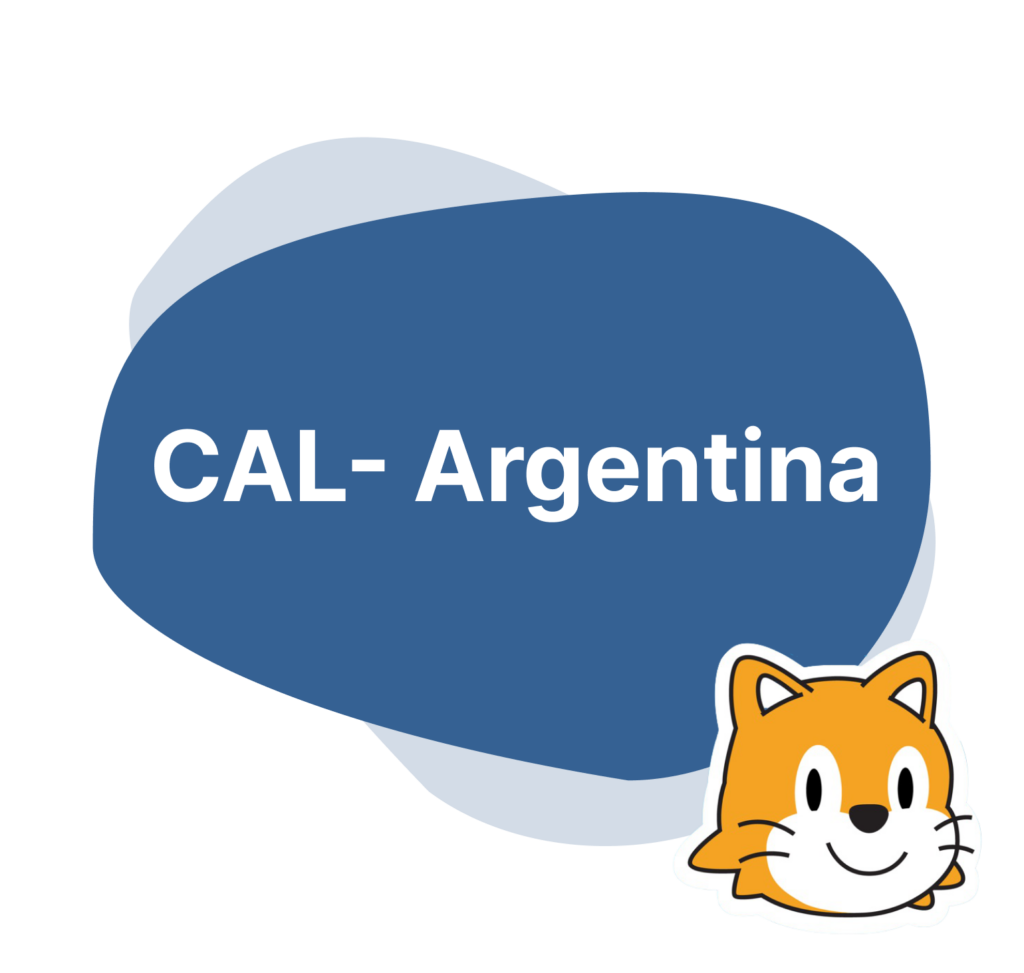
Partnership
DevTech Research Group has partnered the Varkey Foundation and Comunidad Atenea to implement the CAL-ScratchJr curriculum in Corrientes and Mendoza, Argentina. The project leads for this study are Pamela Gonzalez and Hernan Gonzalez, coordinated by Carolina Gimenez.
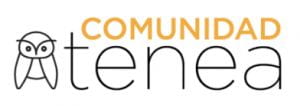
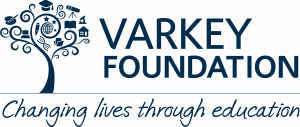
Study Design
The CAL-Argentina study is implementing the CAL-ScratchJr curricula across all three grades. The study design mirrors that of the CAL USA project.
Impact
The project has brought CAL-ScratchJr instruction to 80 early childhood teachers and over 600 K-2 students in Corrientes and Mendoza in Argentina.
Related Papers
Levinson, T., Carocca P., F., & Bers, M. International Scaling of the Coding as Another Language Curriculum through a Research-Practice Partnership in Argentina. (April 2024). American Educational Research Association (AERA) Annual Meeting, Philadelphia, PA.
Bers, M. U., Levinson, T., Yang, Z., Rosenberg-Kima, R. B., Ben-Ari, A., Jacob, S., Dubash, P., Warschauer, M., Gimenez, C., Gonzalez, P., & Gonzalez, H. (2023). Coding as Another Language: An International Comparative Study of Learning Computer Science and Computational Thinking in Kindergarten. In P. Blikstein, J. van Aalst, & K. Brennan (Eds.), 17th International Conference of the Learning Sciences (ICLS) (pp. 1659–1665). https://2023.isls.org/proceedings/
Levinson, T. Teacher Beliefs on Play and Academic Learning with a Kindergarten Coding Curriculum: A Mixed-Methods Study in the United States and Argentina. (March 2024). Dissertation Submitted in Applied Developmental and Educational Psychology,
Lynch School of Education and Human Development, Boston College.

Partnership
DevTech Research Group has partnered with Ceibal, a digital technology center for education innovation at the service of public education policies in Uruguay, to implement the CAL-ScratchJr curriculum in public schools in two departments, Canelones and Montevideo, Uruguay. This project is led by Emiliano Pereiro and the Computational Thinking and Artificial Intelligence team at Ceibal.
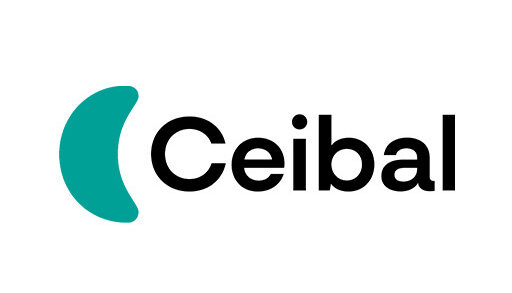
Study Design
The CAL-Uruguay study is implementing an abbreviated version of the CAL-ScratchJr curriculum across 37 second grade classrooms following a randomized controlled trial with delayed treatment design, mirroring the CAL-USA project.
Localized Curricula
Based on the previously translated Spanish version of the CAL-ScratchJr curriculum, the Computational Thinking and Artificial Intelligence team at Ceibal abbreviated and adapted the second grade curriculum, featuring the local virtual library Biblioteca Pais, and encouraging local educators to further adapt the lessons in their classrooms. You can find it here.
Impact
The CAL-Uruguay partnership began in 2022 with a massive online professional development course developed by the local partners, which engaged more than 800 educators in the CAL pedagogy for ScratchJr. Following this 120 hours training program, the Computational Thinking and Artificial Intelligence team at Ceibal decided to conduct a pilot study, bringing the CAL-ScratchJr pedagogy and technology to 37 second grade local educators and over 700 students in public schools from Canelones and Montevideo in Uruguay.
To learn more about this ongoing project, please watch this video.
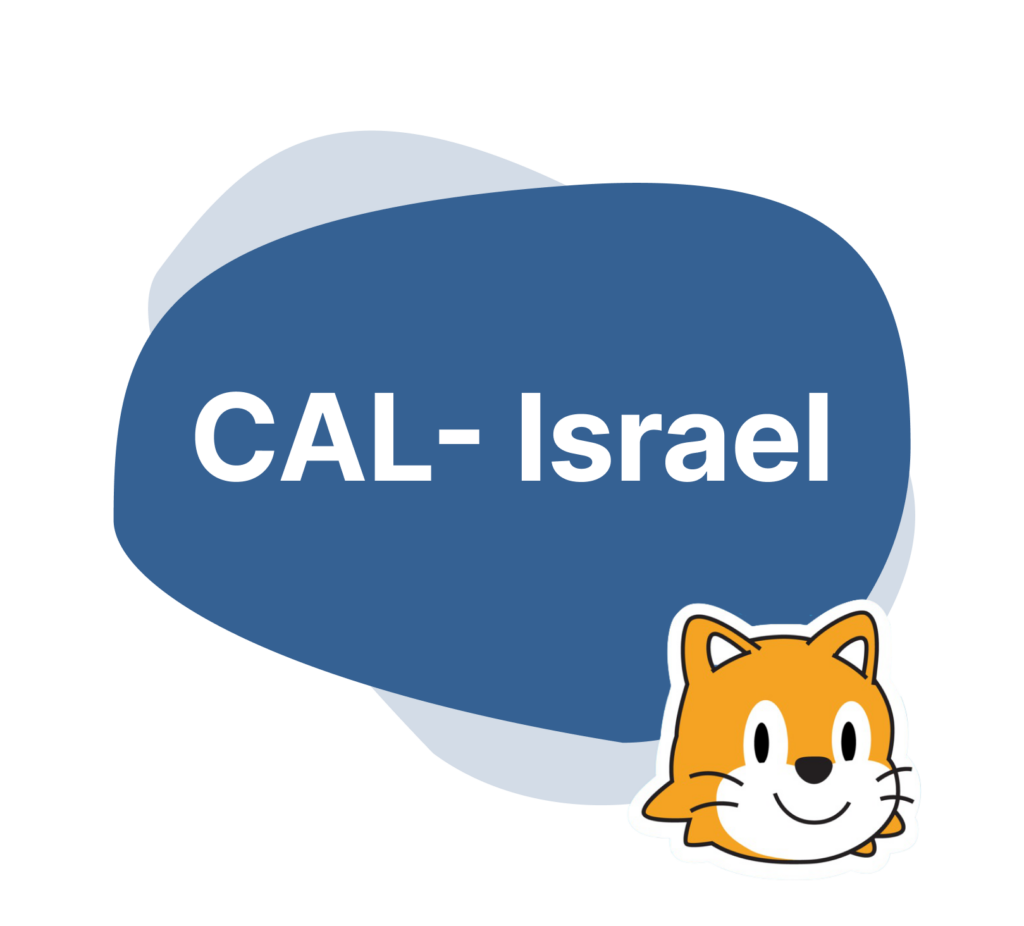
Partnership
The DevTech Research Group at Boston College partnered with the Mindful Learning Technologies Lab at the Technion Israel Institute of Technology to bring CAL to Israel. The project leads in Israel were Professor Rinat Rosenberg-Kima and doctoral student Avia Ben-Ari in collaboration with the Hod HaCarmel School.
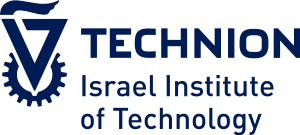
Study Design
The CAL-Israel study implemented both CAL-ScratchJr and CAL-KIBO to two different kindergarten classrooms, with the hope of investigating the impact of the CAL curriculum across different modalities. The study design mirrored that of the CAL USA project.
Impact
This pilot study reached 4 teachers and 30 kindergarten students in Haifa, Israel.
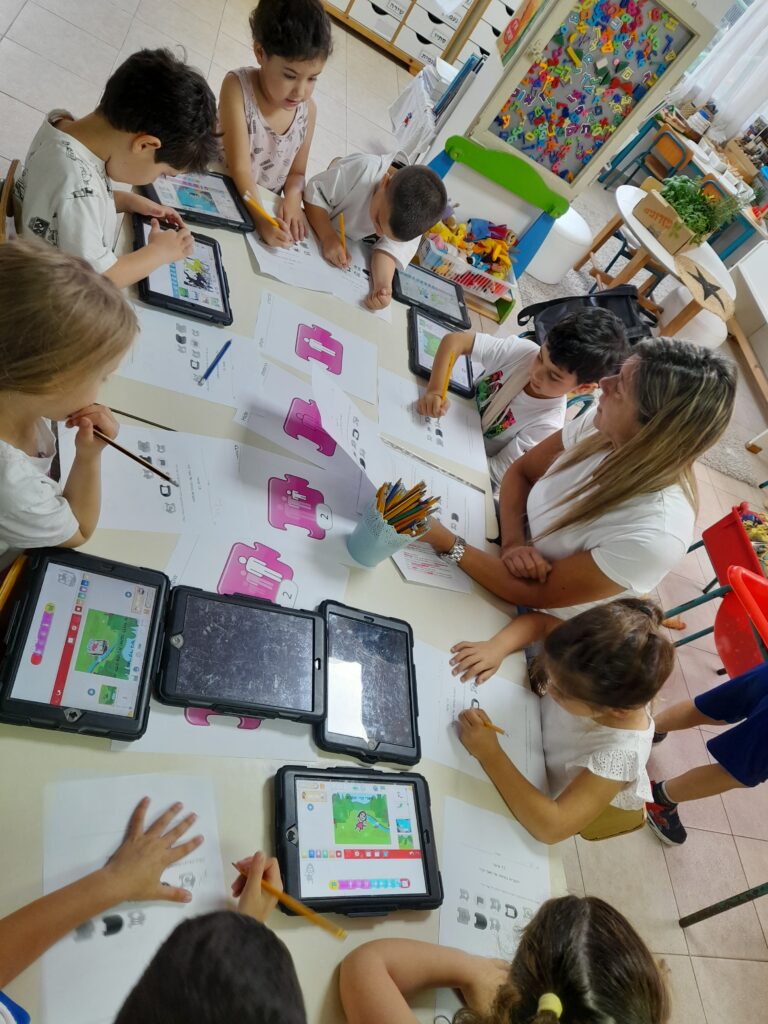
Related Papers
Ben Ari, A., Levinson, T., Bers, M. U., & Rosenberg-Kima, R. B. (2023). Nurturing Computational Thinking in an Israeli Kindergarten with the CAL-KIBO Robotics Curriculum. American Educational Research Association, Chicago, IL.
Bers, M. U., Levinson, T., Yang, Z., Rosenberg-Kima, R. B., Ben-Ari, A., Jacob, S., Dubash, P., Warschauer, M., Gimenez, C., Gonzalez, P., & Gonzalez, H. (2023). Coding as Another Language: An International Comparative Study of Learning Computer Science and Computational Thinking in Kindergarten. In P. Blikstein, J. van Aalst, & K. Brennan (Eds.), 17th International Conference of the Learning Sciences (ICLS) (pp. 1659–1665). https://2023.isls.org/proceedings/

Study Design
TeachCAL is the online and asynchronous professional development (PD) workshop available online for anyone to be trained on ScratchJr and the Coding as Another Language (CAL) curriculum. Through a mixed-methods research initiative, the TeachCAL study evaluated its impact on teacher coding growth and self-efficacy. The study specifically focused on teachers’ perceptions of the relevance of human values in computer science teaching.
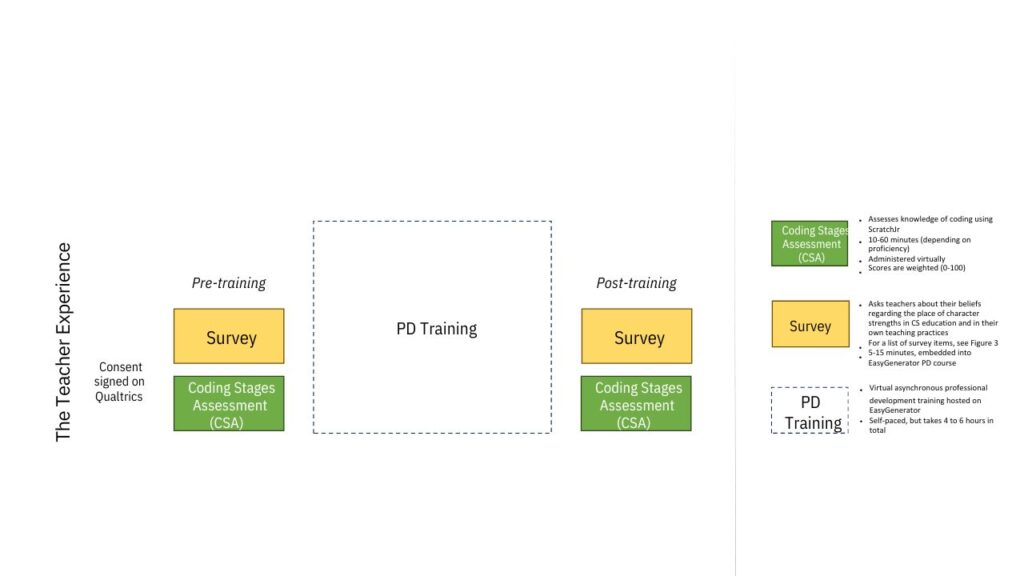
DevTech is currently piloting a study to compare different modalities of the CAL PD (virtual asynchronous, virtual synchronous, and in-person). Last year, we ran a study comparing TeachCAL, the virtual asynchronous model, to 2 different virtual synchronous models (one led by a DevTech facilitator, and one led by a trained local tech leader). For more information, please see Alrawashdeh et al. (2024).
Impact
The TeachCAL study involved working with teachers and educators around the world. TeachCAL was offered in both English and Spanish with 73 total participants completing all steps of the research initiative. Participants were mostly from North America but spanned across 5 other continents.
Related Papers
Alrawashdeh, G. S., Nadler, E. C., & Bers, M. U. (2024). Virtual Professional Development Enhances Elementary Teacher Coding Skills and Self-Efficacy: A Comparison of Three Models. In New Approaches in Mobile Learning for Early Childhood Education (pp. 114-137). IGI Global.

